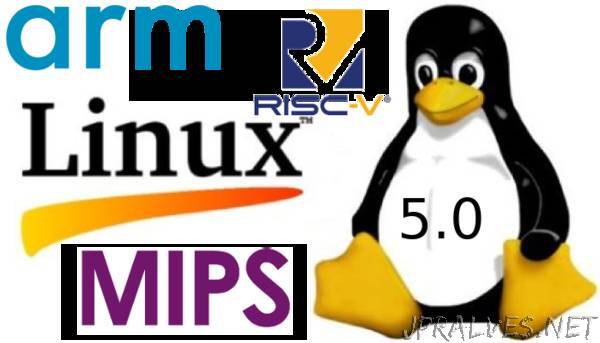
“The long-anticipated Linux 5.0 kernel series is now available for general public as Linus Torvalds put an end to the development cycle today, releasing the final version into the wild.
The development cycle of the Linux 5.0 kernel series kicked off two months ago, during which seven RC (Release Candidate) milestones were published for testing paving the road for this major version change, which, sadly, doesn’t mean anything besides the fact that running Linux 5.x is cooler than running Linux 4.x.
“The overall changes for all of the 5.0 release are much bigger. But I’d like to point out (yet again) that we don’t do feature-based releases, and that “5.0” doesn’t mean anything more than that the 4.x numbers started getting big enough that I ran out of fingers and toes,” said Linus Torvalds in a mailing list announcement.
Here’s what’s new in Linux kernel 5.0
While the major version change doesn’t mean a thing, the Linux 5.0 kernel does introduce some interesting bits, such as FreeSync support in the AMDGPU open-source graphics driver to allow for a stutter-free viewing experience on machines with AMD Radeon GPUs and LCDs with dynamic refresh rates.
Linux kernel 5.0 also introduces a new energy-aware scheduling feature that leads to improved power management in devices using ARM big.LITTLE CPUs, support for the Adiantum file system encryption in fscrypt for low power devices, and support for swap files in the Btrfs file system.
Other noteworthy changes include support for the Generic Receive Offload (GRO) feature in the UDP (User Datagram Protocol) implementation, support for the cpuset resource controller in cgroupv2, as well as support for the binderfs file system that allows for running multiple instances of Android.
Of course, numerous drivers have been updated and others were added in this release, along with countless bug and security fixes. Linux kernel 5.0 is available for download right from kernel.org or via our free software portal if you want to compile it yourself, and it’s also coming soon to a GNU/Linux distribution near you in the next few days.”
